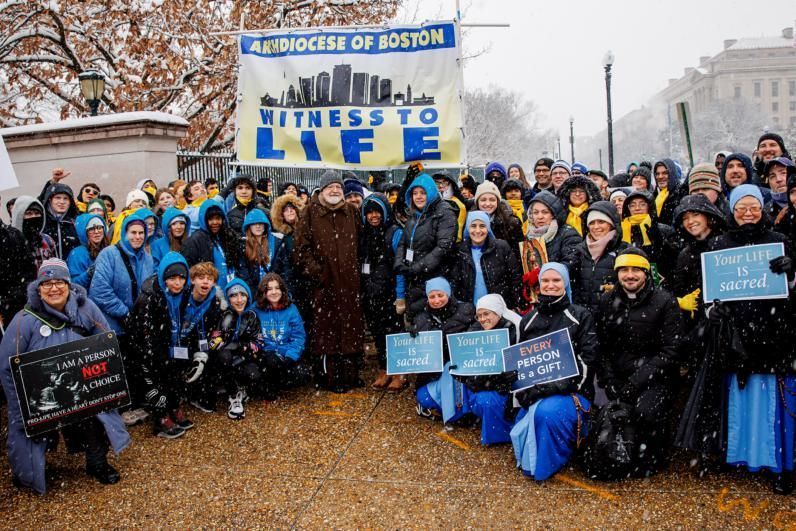By Father Steven Clemence
•
April 17, 2025
Dear Brothers and Sisters, CHRIST IS RISEN, ALLELUIA, ALLELUIA!!! I pray that during these next 50 days of the Easter season, you may truly experience the resurrection of Christ in your life. The resurrection is not something magical, as though Christ waves a wand and suddenly we are converted. Lent is our preparation, a spiritual journey that leads us to the moment of Jesus passing through our lives at Easter. According to the Gospels, on Easter morning only Mary Magdalene encounters the Risen Christ. No one else does at first. Over the coming weeks, we will hear different Gospel accounts of others meeting the Risen Lord in a variety of places and situations—reminding us that Christ reveals Himself in many ways, often when we least expect it. We live in a world that doesn’t like to wait. We’ve grown accustomed to instant everything. It’s funny to think how different things were not so long ago—waiting through commercials on TV, or sending letters by mail that took days or weeks to arrive. Today, we can get deliveries within hours and watch any show, anywhere, anytime. Yet, when we read Scripture, we discover that God often calls His people to wait. Abraham waited most of his life for God to fulfill His promises. Then he waited again to hear His voice. The Israelites wandered 40 years in the desert. Clearly, God is in no rush. He could have created the world in an instant, yet He chose to take seven days. After our Lenten preparation, now we enter the season of hope and anticipation—waiting for the Lord to appear. We don’t know when or how, but we trust that He will come. Let us not be like the disciples on the road to Emmaus, who walked and spoke with Jesus without recognizing Him. Each year, Christ seeks to free us from the lies and chains of the enemy. We are often tempted to believe that we are not good enough, that we cannot forgive ourselves for past mistakes, or that a certain person will always remain a painful burden in our lives. The suffering we see around us can deepen that grief. The disciples, too, experienced this kind of “death” of the soul—sadness, confusion, even despair. But in the midst of this brokenness, Christ appears. He comes to reveal that those things no longer have power over us. He breaks the chains of darkness. A better image might be this: Christ has flung open the doors of our prison cell—but we must choose to walk out. The Holy Spirit comes to give us the strength to take that step into freedom. The freedom to forgive. The freedom to see how valuable and loved we truly are. It doesn’t matter if we are “good enough”—God loves us as we are. He knows we have our struggles. I like to say, respectfully and with humor, that we are sometimes God’s “high-maintenance children.” Yet He loves us just the same! So now that we have heard the news of the Resurrection—what do we do? Peter and John ran to the tomb. They left the place where they were and sought Christ. We are invited to do the same. It doesn’t matter if you’ve been coming to church regularly, or if this is your first time here in a while—the invitation is for everyone . This Jubilee Year is a special time of grace. Come out of fear and into the freedom of the Risen Christ! Encounter Him in the many opportunities offered in our parish: Daily Mass (Monday to Saturday at 7:30 AM), Adoration (6:30–7:30 AM and 6–7 PM), Confessions (6–7 PM), Jubilee Talks every Wednesday (7–8 PM), Tuesdays in Spanish, Thursdays in Portuguese Upcoming retreats: Unbound in English (May 24), Brazilian retreat (May 24–25), Spanish couples retreat (June 1), Join one of our many ministries—Cenacle, Knights of Columbus, St. Vincent de Paul, Neocatechumenal Way, Bible Study, Friends of Faith, Bereavement Ministry—or serve at Mass as a catechist, lector, singer, or Eucharistic minister. Maybe the wait is over. The Risen Christ is already here, waiting to encounter you . He will free you. He will give you new life. Come and see! God Bless, Fr. Steven


